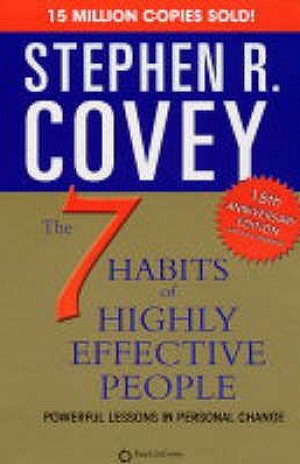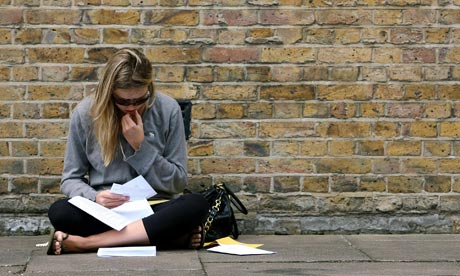In my first year of teaching, I had the fortune of working with an exceptionally creative staff body. I was inspired practically every day by the innovation at the performing arts school. Some things I tried and they failed, but I failed in a safe environment, my line manager was forgiving and encouraging and that empowered me to innovate some more. Whilst my environment changed over the next 6 years of my teaching career, I was still inspired to innovate and create engaging lessons:
But the big question is how do we innovate? Mihaly Csikszentmihalyi would argue that creativity leads to happiness and it generally leads to flow and great innovation. As a dancer, I learnt that in order to create something original, we need to combine two (sometimes unrelated) elements. Nothing is truly new or original on its own, but in combination we can truly create and innovate. This lead to my first innovation in my first term of teaching, "Teaching spreadsheets through dance"
There are those that disagree that this style of constructive learning is beneficial, Harry Webb whilst commenting on an excellent post about Direct Instruction vs Constructivism states:
"...Constructivism also has damaging effects other than those associated with minimal guidance. It delegitimises the teacher as an expert. Teachers see themselves as needing to ‘engage’ students with ‘relevant’ and ‘authentic’ tasks; a sort of ‘customer knows best’ mentality. This pulls teachers away from focusing on cognitively taxing problems and forces them to introduce potentially distracting contexts. It also creates debilitating levels of guilt around a failure to deliver on nebulous concepts such as differentiation."
I would strongly disagree with Harry Webb who states that Direct Instruction should be used for all new content, I used constructivism for new content and combined with some direct instruction later on, it had a dramatic effect. All students achieved 1+ grade of value added and that same set scored 100% A-C in their GCSE ICT exam, most notably they were all comfortable using spreadsheets throughout their school career.
Indeed, students themselves may innovate and in turn lead us teachers to re-evaluate our teaching and curriculum as was the case when a student demonstrated to the class how to make a game us presentation software, in this case, Powerpoint:
At times however, innovation does not look pretty. Indeed it can simply be deciding to teach using a very didactic form of Direct Instruction as was the case in these revision sessions. To make them a bit more accessible and to maximise time:learning ratio, we could also do these as Vlogs:
#
I wont really get into the flipped classroom debate here but I can say that that it worked well with my GCSE classes who were very much engaged by the multimedia nature of the Vlogs. I'd be interested to hear how other people have innovated in their respective subjects and perhaps we could all learn a bit more from each other as we combine and re-apply these techniques.
Tuesday, 15 October 2013
Monday, 7 October 2013
What can teachers learn from Stephen Covey and chess grandmasters?

At our school, we have staff enrichment (i.e. CPD) every Monday. During these CPD sessions, we are sometimes able to choose from a menu of sessions. One session was entitled "How to be an effective form tutor" another was entitled "How to manage your time more effectively". It was September, we had just had a baby boy 2 months ago and I was getting by on 3-6 hours broken sleep in a day; surprisingly, I was very productive however unsurprisingly, I still opted for the second session!
What did I learn. Two things, first of all, there are only certain things we can control in our life. Whilst working as a door-to-door book salesman, I learnt a phrase "control the controllables". Our Sales leader had obviously read Covey:

Source: Covey, 7 Habits of Highly Effective People (1999)
We must sort ourself out and accomplish private victories before we can accomplish greater public victories. One of those private victories and one which is related to numbers 1-3 above is managing our own time and strategic planning.
This ties into the second thing I learnt about time management. We should try to plan well in advance, having a strategic overview and also planning by the week rather than by the day. As a result we minimise the number of things in the top left corner AKA Crisis Corner.

Source: www.island94.org Adapted from Stephen Covey
How many of us simply let the important things build up until they become urgent and start to seriously stress us out?

Source: Flickr FJTUrban
A few days later it hit me, the teacher who delivered our CPD (yes, most of our CPD is delivered by our own staff) is an avid chess player. Perhaps there was a link between chess and time management as a teacher. Like teaching, chess is a game of strategy. You have to have an end goal, i.e. where you want your students to be at the end of the term/year. Likewise, whilst it helps to know your opponent in chess, it helps to know your classes and students so that you can plan your tactics carefully. I make no comparison to battlefields and the front-line though!
Similarly, the sequences of moves/lessons strike me as another parallel. And finally, as Covey advises us to plan by the week to avoid crises, in chess if we simply play one move at a time, one lesson at a time, one day at a time, we'll soon find ourselves in moments of stress and crisis as too many things hit us at once. Perhaps, we should all be teaching like a chess grandmaster. We could have set strategies, plan our moves (lessons) well in advance perhaps several moves ahead with a medium and long term goal in mind. We could have a backup plan should our students go off track or make an unanticipated move(ment) in progress. With all this in place, I believe it is less likely that we will get caught out. Instead we will spend more of our time in "The Zone", planning and delivering good and outstanding lessons, rather than flailing around fighting small fires in the bottom left corner or dealing with larger fires in the top left.
I'd be interested in hearing your thoughts. Am I just stating the obvious or does the analogy help us manage our time more effectively as teachers?
Friday, 28 December 2012
Useful websites for IGCSE ICT
IGCSE ICT, run by a former teacher from ISS Mahé. The site covers all theory and practical aspects in detail.
The ICT Lounge offers straightforward material for the IGCSE. Some of the files open as seperate PDF's. Useful for revision and self-study purposes.
Friday, 26 October 2012
Around the world in a week
For the last week of half-term, lessons were planned on the theme of "Around the world in a week". This involved students rotating around different countries each day (sometimes more than 1 a day). Here they would learn a bit about a country's culture and participate in some learning, be it in new languages, arts, crafts, cooking, maths or experiments. It was a huge success and this video shows some of the highlights. The week ended with a MUFTI day and a cake sale.
Friday, 19 October 2012
5 free sites to learn programming and computer science
Code Avengers http://www.codeavengers.com/
Javascript, HTML, CSS

Learn Javascript (and they have recently added HTML/CSS). They even have a rap/theme tune which is quite catchy. Great for kids and adults alike.
Code academy http://www.codecademy.com/
Python, Javascript, Ruby, JQuery, HTML CSS

Probably more geared towards 16+/Adults as there's less of the animated kids graphics in there.
edX: https://www.edx.org/
Certified university level courses in Programming, Saas, Computer graphics etc

Free lessons from MIT, Harvard, Berkeley, University of Texas. You even get a free certificate from HarvardX, MITX etc. What more could you ask for?
Coursera: https://www.coursera.org/
Purely for the love of learning, you can learn a huge range of subjects

A huge range of free courses including:
Biology & Life Sciences
Computer Science: Artificial Intelligence, Robotics, Vision
Computer Science: Systems, Security, Networking
Economics & Finance
Electrical and Materials Engineering
Health and Society & Medical Ethics
Information, Technology, and Design
Medicine
Physical & Earth Sciences
Business & Management
Computer Science: Programming & Software Engineering
Computer Science: Theory
Education
Food and Nutrition
Humanities and Social Sciences
Mathematics
Music, Film, and Audio Engineering
Statistics, Data Analysis, and Scientific Computing
University of Cambridge: http://www.cl.cam.ac.uk/freshers/raspberrypi/tutorials/os/
Build an operating system using a Raspberry Pi

Javascript, HTML, CSS

Learn Javascript (and they have recently added HTML/CSS). They even have a rap/theme tune which is quite catchy. Great for kids and adults alike.
Code academy http://www.codecademy.com/
Python, Javascript, Ruby, JQuery, HTML CSS

Probably more geared towards 16+/Adults as there's less of the animated kids graphics in there.
edX: https://www.edx.org/
Certified university level courses in Programming, Saas, Computer graphics etc

Free lessons from MIT, Harvard, Berkeley, University of Texas. You even get a free certificate from HarvardX, MITX etc. What more could you ask for?
Coursera: https://www.coursera.org/
Purely for the love of learning, you can learn a huge range of subjects

A huge range of free courses including:
Biology & Life Sciences
Computer Science: Artificial Intelligence, Robotics, Vision
Computer Science: Systems, Security, Networking
Economics & Finance
Electrical and Materials Engineering
Health and Society & Medical Ethics
Information, Technology, and Design
Medicine
Physical & Earth Sciences
Business & Management
Computer Science: Programming & Software Engineering
Computer Science: Theory
Education
Food and Nutrition
Humanities and Social Sciences
Mathematics
Music, Film, and Audio Engineering
Statistics, Data Analysis, and Scientific Computing
University of Cambridge: http://www.cl.cam.ac.uk/freshers/raspberrypi/tutorials/os/
Build an operating system using a Raspberry Pi

Tuesday, 25 September 2012
How culture affects teaching, learning and attention spans
I haven't blogged for a while here as I recently moved away from the busy hustle and bustle of London to take up a teaching post in Seychelles. One thing became apparent very quickly, Seychelles is like 1970's Britain in many ways. You can read more about this on my Seychelles blog. In short:
1) People know their neighbours and say hello to everyone in the street
2) You have to do your grocery shopping in three different shops as there are no big supermarket chains
3) Everyone is less-distracted and less stressed-out.
What on earth has this got to do with learning? I was not alone in my search for sanity and serenity, I was joined by 5 other teachers from the UK. The first thing we all remarked on was the length of time Seychellois students could concentrate for. At the London school where I was teaching for 6 years, I would usually cap most learning tasks to 15 mins max. Even the main of a lesson would have plenty of mini-plenaries, not for OFSTED's sake (diagnostic marking, AFL etc), but purely because many students would lose focus otherwise. This was in an outstanding school by the way, where behaviour needed to be managed, but would never be regularly disruptive.
In Seychelles, students happily work for 20-30 mins on any given task; silent-reading for English, intensive spreadsheet work or programming in ICT, writing up notes in response to a texts/sources in History. Students are much more willing to help each other too. There is a genuine sense of community and little sense of aggressive competition or ego. When asked to identify a series of logo's for a logo design lesson, half the class could not identify the Nike logo.
When an English teacher read out some famous blurbs from biographies such as Didier Drogba, Beyonce and Rihanna, the students were blank. They had vaguely heard of these celebrities, but were not at all concerned with keeping up-to-date with their gossip. Tom Cruise was recently sat in a café on the neighbouring island of La Digue. Nobody bothered him at all. Passers-by could not care less.
Another teacher also recently modelled world aid and economies using biscuits. Dividing students onto tables which represented different countries. Some countries had more biscuits to start with and others less. He asked them how they would feel if a country took asked to have a load of biscuits as they didn't have any but then that country never repaid them back. A student simply responded "That's OK, we don't mind". There were many other analogies done in that lesson such as population density and famine, but the students responded quite coldly. This lesson, when delivered in the UK was graded as "Outstanding". Perhaps the Seychellois students were not used to such innovative/creative teaching methods that we (have to) employ in the west to keep our students engaged. They have been used to reading text books and answering questions and so this is what they know and do well.
It is fair to say that local and national culture has a huge part to play on teaching and learning style. Seychellois students do not have the same stimuli as students in the UK/USA/Europe. They are not constantly playing with their phones, apps, twitter etc. They do not need constant stimulation through flashing lights. The amount of time spent on video games is quite low, the time spent outside playing volleyball, running, playing football is much greater. So in many cases, Seychelles is like 1970's Britain. But things are slowly changing. The country recently had fibre optic broadband laid down and some households are using USB Internet dongles. I wonder how long it will take before student's attention spans diminish from 30 mins to 3mins. Or whether it will happen at all. As the world flattens, I don't have an answer, but am happy to be teaching in a productive environment and will slowly phase in those crazy/create lessons. Teaching spreadsheets through dance may have to wait!
1) People know their neighbours and say hello to everyone in the street
2) You have to do your grocery shopping in three different shops as there are no big supermarket chains
3) Everyone is less-distracted and less stressed-out.
What on earth has this got to do with learning? I was not alone in my search for sanity and serenity, I was joined by 5 other teachers from the UK. The first thing we all remarked on was the length of time Seychellois students could concentrate for. At the London school where I was teaching for 6 years, I would usually cap most learning tasks to 15 mins max. Even the main of a lesson would have plenty of mini-plenaries, not for OFSTED's sake (diagnostic marking, AFL etc), but purely because many students would lose focus otherwise. This was in an outstanding school by the way, where behaviour needed to be managed, but would never be regularly disruptive.
In Seychelles, students happily work for 20-30 mins on any given task; silent-reading for English, intensive spreadsheet work or programming in ICT, writing up notes in response to a texts/sources in History. Students are much more willing to help each other too. There is a genuine sense of community and little sense of aggressive competition or ego. When asked to identify a series of logo's for a logo design lesson, half the class could not identify the Nike logo.
When an English teacher read out some famous blurbs from biographies such as Didier Drogba, Beyonce and Rihanna, the students were blank. They had vaguely heard of these celebrities, but were not at all concerned with keeping up-to-date with their gossip. Tom Cruise was recently sat in a café on the neighbouring island of La Digue. Nobody bothered him at all. Passers-by could not care less.
Another teacher also recently modelled world aid and economies using biscuits. Dividing students onto tables which represented different countries. Some countries had more biscuits to start with and others less. He asked them how they would feel if a country took asked to have a load of biscuits as they didn't have any but then that country never repaid them back. A student simply responded "That's OK, we don't mind". There were many other analogies done in that lesson such as population density and famine, but the students responded quite coldly. This lesson, when delivered in the UK was graded as "Outstanding". Perhaps the Seychellois students were not used to such innovative/creative teaching methods that we (have to) employ in the west to keep our students engaged. They have been used to reading text books and answering questions and so this is what they know and do well.
It is fair to say that local and national culture has a huge part to play on teaching and learning style. Seychellois students do not have the same stimuli as students in the UK/USA/Europe. They are not constantly playing with their phones, apps, twitter etc. They do not need constant stimulation through flashing lights. The amount of time spent on video games is quite low, the time spent outside playing volleyball, running, playing football is much greater. So in many cases, Seychelles is like 1970's Britain. But things are slowly changing. The country recently had fibre optic broadband laid down and some households are using USB Internet dongles. I wonder how long it will take before student's attention spans diminish from 30 mins to 3mins. Or whether it will happen at all. As the world flattens, I don't have an answer, but am happy to be teaching in a productive environment and will slowly phase in those crazy/create lessons. Teaching spreadsheets through dance may have to wait!
Sunday, 9 September 2012
Wilson Miner-When we build
For anyone that wants to survive and thrive in the 21st century as a designer or user. This is essential viewing:
Via Carl Stratton and EmbedTree
Via Carl Stratton and EmbedTree
Thursday, 16 August 2012
My thoughts on A-Level grades falling #ResultsDay
I will start by saying our overall results remain excellent, 100% A-C at AS and 90% A-B at A2 for the subjects I teach (Media and ICT). I am neither bitter nor disappointed in my students. I am proud of what they have achieved. However, the bar has definitely been raised across our subjects and indeed all subjects. Exemplary students who would comfortably have achieved an A/A* based on past papers and our predictions did not and a lot of our coursework was moderated down for the first time in several years. We were previously an accredited centre and have taught the same coursework briefs/modules for 4 years. We spend several days moderating, so needless to say, our marking is generally accurate. This (negative) moderation of coursework also happened in the History Department. It appears this is an additional reason why the grades have dropped in addition to the exam boards simply raising the grade boundaries implicitly.
Incidentally, I think universities have picked up on this and because so many students missed their offers yesterday, many of our students got in on clearing to AAB universities, despite missing by two grades in some cases.
It's quite interesting to hear Kevin Stannard's thoughts. I'm not at all surprised by this Conservative administration tweaking things to make a political point though. i.e. The usual farcical rhetoric of "Teachers are failing, ed reform is necessary, Ebac is important to raise standards, bring in a load of ex-military and bankers from the city etc to raise educational standards." The likelihood is results will go up next year and the Conservatives (mainly Gove, Gibb and Cameron) will claim it's because of their changes in ed policy. It's not, they've just fudged the stats (again).
This post was written in response to this article by William Stewart posted on the TES:
Source: www.guardian.co.uk
Incidentally, I think universities have picked up on this and because so many students missed their offers yesterday, many of our students got in on clearing to AAB universities, despite missing by two grades in some cases.
It's quite interesting to hear Kevin Stannard's thoughts. I'm not at all surprised by this Conservative administration tweaking things to make a political point though. i.e. The usual farcical rhetoric of "Teachers are failing, ed reform is necessary, Ebac is important to raise standards, bring in a load of ex-military and bankers from the city etc to raise educational standards." The likelihood is results will go up next year and the Conservatives (mainly Gove, Gibb and Cameron) will claim it's because of their changes in ed policy. It's not, they've just fudged the stats (again).
This post was written in response to this article by William Stewart posted on the TES:
William Stewart
Decades of “grade inflation” ended this morning as the proportion of pupils achieving the highest A-level grades dropped for the first time in 21 years.
The A* grade, introduced in 2010, was awarded to 7.9 per cent of entries this year, compared with 8.2 per cent last year, breaking the now familiar narrative of ever-increasing results and accusations of dumbing down.
The proportion of A-level entries gaining grade A or above also fell, to 26.6 per cent, lower than the 2009 level. It is the first time that the proportion of A grades has gone down since 1991.
It is the first time that the proportion of A grades has gone down since 1991.
Exam boards say that the fall is explained by a “different cohort profile” from last year. The drop follows a levelling off last year, with 27.0 per cent of students achieving A and A* grades in both 2010 and 2011.
The shift has coincided with a greater emphasis from exams regulator Ofqual on pegging results to the performance of -previous years. TES also understands that in meetings this year the watchdog instructed exam boards to err on the conservative side when deciding in borderline cases where grade boundaries should be placed.
The overall percentage of A-level entries gaining an A*-E pass went up for the 30th successive year, with a slight increase to 98 per cent. But that news, alongside Ofqual’s denial that results have been “fixed”, is unlikely to allay the fears of some schools that pupils have been unfairly penalised.
Kevin Stannard, a former exam board official and director of learning at the Girls’ Day School Trust, which runs two academies and 24 independent schools, said that having a criterion-based exam system – which does not put a cap on the number of students allowed to achieve certain grades – leads to increasing numbers of pupils getting A/A* passes.
“Grade inflation is a systemic feature of criterion-based exams, so if there isn’t a record percentage of pupils getting top grades again this year, it suggests something quite disturbing: the system isn’t so much broken as corrupt,” he said.
“Someone will have decided to raise the bar, not by setting more difficult questions but simply by raising the boundary mark for particular grades.”
Subscribe to:
Posts (Atom)



